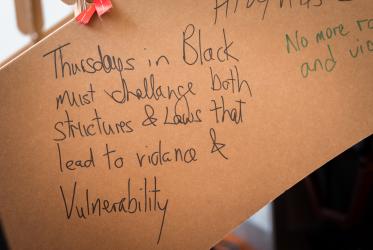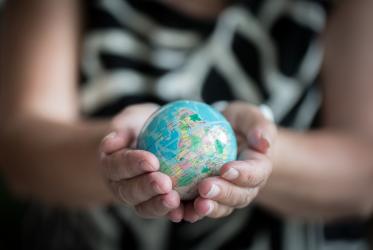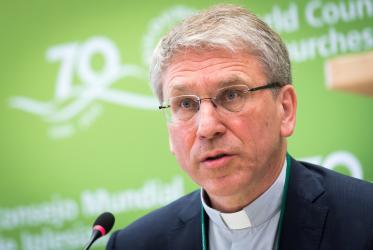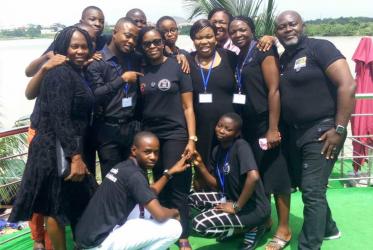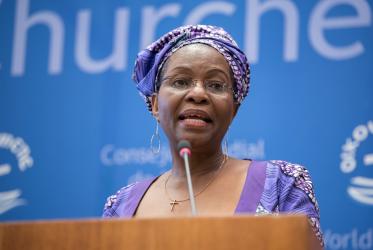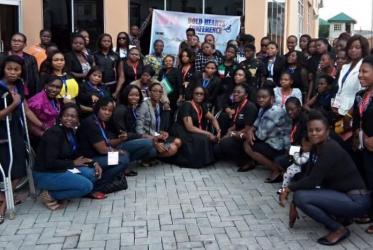Displaying 1 - 11 of 11
South Africans draw hope despite recurring challenges
16 December 2019
When you strike the women, you strike a rock
18 September 2019
Tveit in DRC: “Making peace is holy work”
19 August 2018
WCC “Pilgrim Team” to visit South Sudan
30 April 2018




